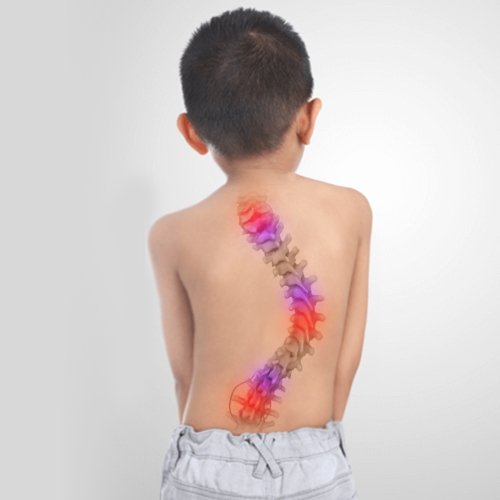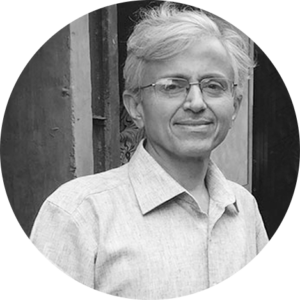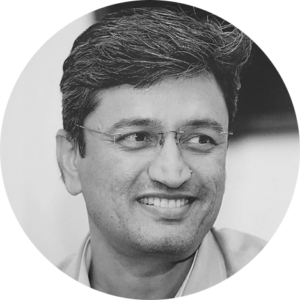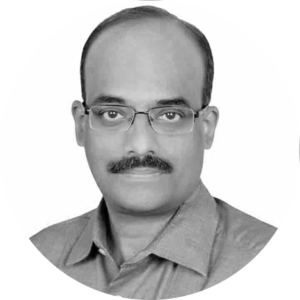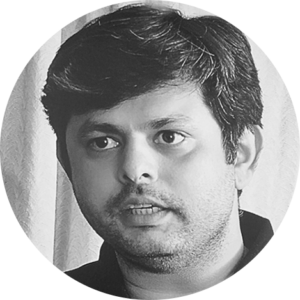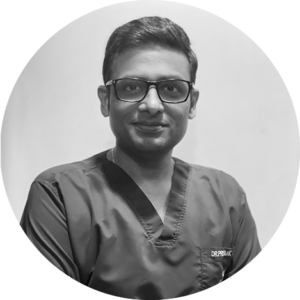PLAN YOUR TRIP
FOR SPINE SURGERY
IN INDIA
Recognizing Cervical Spondylosis Treatment in Mumbai: Key Indicators and Impact on Well-being
Cervical spondylosis, also known as cervical osteoarthritis, is a condition that affects the neck vertebrae. It is a degenerative condition that develops as people age and the discs between the vertebrae in the neck begin to wear down. This condition can cause a range of symptoms, including neck pain, stiffness, and even headaches. In this article, we will discuss the causes, symptoms, treatment, and more related to cervical spondylosis.
Causes of Cervical Spondylosis
Cervical spondylosis is caused by the degeneration of the discs in the neck vertebrae. This degeneration can be caused by a range of factors, including:
1. Age:
As people age, the discs in their spine can begin to wear down, leading to cervical spondylosis.
2. Genetics:
Some people may be more prone to developing cervical spondylosis due to their genetic makeup.
3. Trauma:
People who have experienced a neck injury or trauma may be more likely to develop cervical spondylosis.
4. Poor posture:
People who have poor posture may be more likely to develop cervical spondylosis, as the extra strain on the neck can cause the discs to wear down more quickly.
Symptoms of Cervical Spondylosis
The symptoms of cervical spondylosis can vary from person to person. Some people may experience no symptoms at all, while others may experience severe pain and discomfort. Some common symptoms of cervical spondylosis include:
- Neck pain and stiffness
- Headaches
- Tingling or numbness in the arms or hands
- Weakness in the arms or hands
- Loss of balance
- Vertigo or dizziness
- Loss of bladder or bowel control (in severe cases)
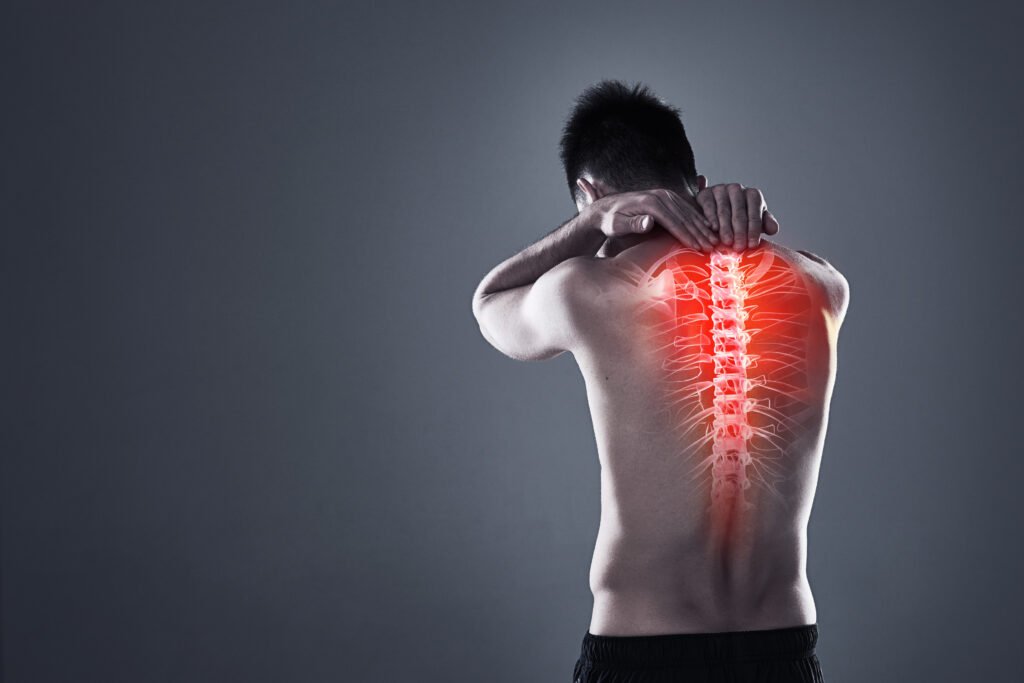
Diagnosing Cervical Spondylosis
If you are experiencing any of the symptoms of cervical spondylosis, it is important to see a doctor for a proper diagnosis. Your doctor may perform a physical exam and order imaging tests, such as an X-ray or MRI, to determine the extent of the damage to your neck vertebrae.
Treatment for Cervical Spondylosis
The treatment for cervical spondylosis in Mumbai will depend on the severity of your symptoms and the extent of the damage to your neck vertebrae. Some common treatments for cervical spondylosis include:
1. Pain medications:
Over-the-counter pain medications, such as ibuprofen or acetaminophen, may help relieve pain and inflammation.
2. Physical therapy:
A physical therapist can teach you exercises to help strengthen your neck muscles and improve your range of motion.
3. Neck brace or cervical collar:
A neck brace or cervical collar can help support your neck and alleviate pain.
4. Surgery:
In severe cases of cervical spondylosis, surgery may be necessary to remove damaged discs or bone spurs and relieve pressure on the nerves in the neck.
Complications of Cervical Spondylosis
If left untreated, cervical spondylosis can lead to a range of complications, including:
- Chronic pain
- Loss of bladder or bowel control
- Paralysis
- Respiratory failure
Therefore, it is important to seek medical attention if you are experiencing any symptoms of cervical spondylosis.
Best Spine Surgeon Mumbai
If you are looking for a cervical spondylosis specialist doctor in Mumbai? Look no further, as Mumbai boasts a prominent spondylosis surgeon specialist who can provide the expertise and treatment you need.Mumbai offers a range of healthcare facilities equipped to provide effective treatment for cervical spondylosis. With a focus on optimizing your search, you can explore a reputable cervical spondylosis surgeon in Mumbai that offer dedicated services for cervical spondylosis. These specialists possess extensive expertise in diagnosing and managing the condition, providing personalized treatment plans tailored to your needs. By seeking cervical spondylosis treatment in Mumbai, you can access top-quality care from experienced doctors and surgeons who are well-versed in the latest advancements in cervical spondylosis treatment.
If you are in search of the Best Spine Surgeon Mumbai , then look no further than Dr. Priyank Patel. With over 13 years of experience in spinal surgery, he has become one of the most renowned and respected spinal surgeons in the country. He is known for his exceptional surgical skills and patient-centric approach, which has earned him a reputation as one of the most trustworthy and reliable surgeons in the industry. Dr Priyank’s extensive experience in dealing with complex spinal problems has made him a go-to surgeon for patients from across the world. So, if you are looking for a spine surgeon who is not only skilled but also compassionate, then Dr. Priyank is the right choice for you.
Frequently Asked Questions about Cervical Spondylosis
Cervical spondylosis is a degenerative condition that affects the neck vertebrae. It is caused by the wear and tear of the discs between the vertebrae in the neck, leading to a range of symptoms.
The symptoms of cervical spondylosis can include neck pain and stiffness, headaches, numbness or tingling in the arms or hands, weakness in the arms or hands, and loss of balance or coordination. In severe cases, cervical spondylosis can cause paralysis or loss of bladder or bowel control.
Cervical spondylosis can be diagnosed through a physical exam, imaging tests such as X-rays or MRI, and nerve function tests. Your doctor may also ask about your medical history and symptoms to make a diagnosis.
People with cervical spondylosis should avoid activities that put strain on the neck, such as heavy lifting or prolonged sitting in the same position. Poor posture should also be avoided, as it can worsen symptoms.
While there is no permanent cure for cervical spondylosis, there are steps you can take at home to manage symptoms and prevent further damage. These include improving posture, doing neck exercises to strengthen muscles, using a cervical collar or neck brace for support, and managing pain through techniques such as heat therapy or over-the-counter pain medications. It is important to consult with a doctor before starting any new treatment regimen.
In severe cases, cervical spondylosis can cause paralysis, loss of bladder or bowel control, or respiratory failure. These are the worst symptoms of cervical spondylosis and require immediate medical attention.
Treatment for cervical spondylosis may include pain medications, physical therapy, neck braces or cervical collars, or surgery in severe cases. Your doctor can help determine the best treatment plan for you based on your symptoms and medical history.
The best treatment for cervical spondylosis will depend on the severity of your symptoms and the extent of the damage to your neck vertebrae. Non-surgical treatments such as pain medications, physical therapy, and neck braces or cervical collars are typically recommended first. Surgery may be necessary in severe cases.
Unfortunately, there is no permanent cure for cervical spondylosis. However, managing symptoms and preventing further damage to the neck can help improve quality of life. This can be done through non-surgical treatments such as physical therapy, pain management, and lifestyle changes such as improved posture and avoiding activities that strain the neck.
The best treatment for cervical spondylosis will depend on the severity of your symptoms and the extent of the damage to your neck vertebrae. Non-surgical treatments such as pain medications, physical therapy, and neck braces or cervical collars are typically recommended first. Surgery may be necessary in severe cases.
Patient Information
Conditions
Treatments
Preventive Care
Our Approach
At The We are spine we offer the most advanced and
effective bespoke treatment packages to suit your needs
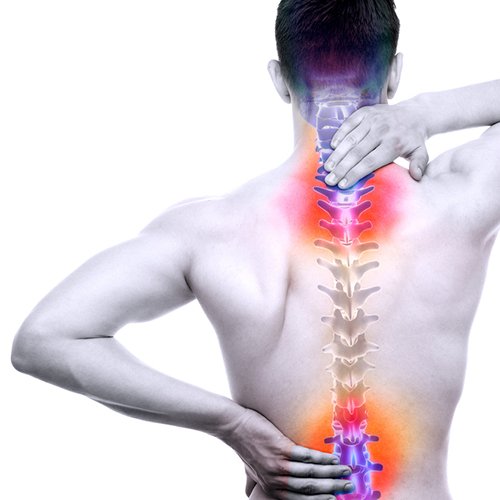
Assessment
For effective pain treatment, it is imperative to diagnose the underlying condition.
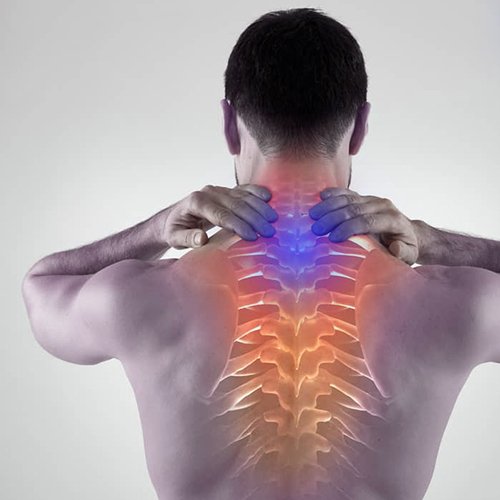
Surgery
We advise surgical intervention only when the risk of surgery is far lower than the risk of leaving…
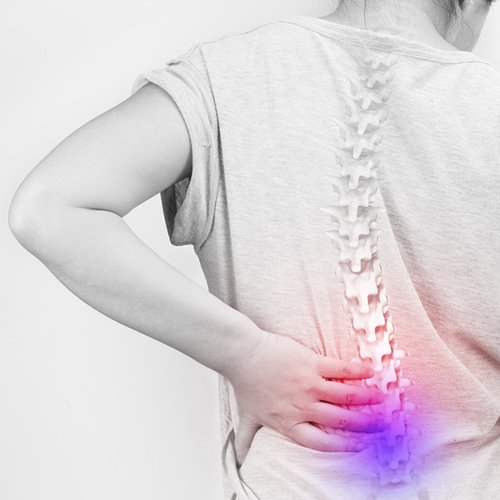
Rehab
We guide individuals on how to prevent first or recurrent back pain by suggesting lifestyle…
Meet Our Doctors
Patients’ Testimonials
Trustindex verifies that the original source of the review is Google. एक Doctor के रूप मे ईश्वर का वरदान हें dr. Bhojraj आपको spine से सम्बंधित किसी भी समस्या के लिये निश्चित ही bhojraj sir से सम्पर्क कर लेना चाहिए । मेरी सर्जरी भी मार्च 2010 में Lilawati hospital Mumbai में उन्हीं के द्वारा अत्यंत सफलतापूर्वक की गई थी, बहुत सरल,शांत व अपने कार्य को समर्पित व्यक्ति हें dr.Bhojraj sirTrustindex verifies that the original source of the review is Google. One of the finest surgeons in India.His patience, knowledge and demeanor stills confidence. He saved me from an imminent surgery advised by another doctor. Dr Bhojraj looks at a patient and assesses the situation instead of blindly relying on reports. He cured me naturally with extreme patience and care.Hats off to him.A great boon to medical worldTrustindex verifies that the original source of the review is Google. My best 💯 Doctor dr shekhar bhojraj Jai hind sir Aapka dannewaad aap ne mujhe naya Jivan diye thanks🙏🙏🙏🙏🙏Trustindex verifies that the original source of the review is Google. The BEST....Life saviour for us
